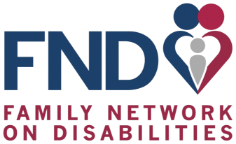INformation Hub
Parent Participation in Early Intervention
Parent Participation in Early Intervention
Current as of July 2021
Families, most particularly parents, are vital participants in early intervention. Your contributions are invaluable:
- at the individual level where you are intimately involved in determining the services that your own child will receive; and
- at an organizational level determining policies and scope for EI programs.
The resources below have been identified because they address the many dimensions of parent involvement, including the parents’ right to be involved in decision making regarding their child and the early intervention services he or she receives. There are also resources to help early intervention systems promote the active involvement of families at either the organizational or individual levels.
- Resources for parents (Keep scrolling)
- Resources for early intervention providers
_____________________________________
Resources For Parents
Early intervention: What it is and how it works.
Quick overview, in English and Spanish.
Watch a video | All about early intervention and parents’ involvement.
Providing Hope, Realizing Dreams will acquaint you with all aspects of the Birth to Three System in Connecticut, from the first point of contact through the evaluation, program planning, and service delivery phases. You’ll be introduced to three families who share their experiences and describe what Birth to Three supports and services have meant to their families. While the video is specific to the Connecticut system, it generalizes very well to how early intervention works in other states.
https://www.youtube.com/watch?v=Zwuyu5wS5c0
Your child’s development: Age-based tips from birth to 36 months.
This set of age-based handouts include a “what to expect” chart for each age range, frequently asked questions, a research summary, and information about common parenting challenges for each age and stage. From ZERO TO THREE, the National Center For Infants, Toddlers and Families.
https://www.zerotothree.org/resources/series/your-child-s-development-age-based-tips-from-birth-to-36-months
Developmental screening.
Well-child visits allow doctors and nurses to have regular contact with children to keep track of―or monitor― your child’s health and development through periodic developmental screening. Developmental screening is a short test to tell if a child is learning basic skills when he or she should, or if there are delays. Developmental screening can also be done by other professionals in health care, community, or school settings. Read more about when and why developmental screening is important, and what your role as a parent is in the process.
https://www.cdc.gov/ncbddd/childdevelopment/screening.html
Find out about your rights in your state.
The ECTA Center offers this webpage of links to state-specific materials on early intervention.
https://ectacenter.org/topics/procsafe/stateonlineC.asp
Parents on the early intervention team.
The ECTA Center also offers several on-point Practice Guides for families on being involved with the team of early intervention professionals working with your child and family. Among these guides are how to partner with the team evaluating your child, how to support learning at home, sharing what you know with the team, and working with the team along with other family members.
https://ectacenter.org/decrp/type-pgfamily.asp
Resources For Early Intervention Providers
The resources below focus on how early intervention programs and providers can support family involvement and active participation in the early intervention services their young child with disabilities receives.
DEC-family recommended practices.
DEC is the Division of Early Childhood at the Council for Exceptional Children. This special interest division has put together the DEC Recommended Practices to provide guidance to practitioners and families about the most effective ways to improve the learning outcomes and promote the development of young children, birth through five years of age, who have or are at-risk for developmental delays or disabilities. For practitioners, it’s vital to know what DEC Recommended Practices are for working with families. This webpage will tell you.
https://ectacenter.org/decrp/decrp.asp
More on DEC-family recommended practices.
(Multiple resources are also available in Spanish about the recommended practices.)
There are multiple checklists and practice guides available to guide family-centered practices, as well as videos to illustrate those practices. Don’t miss them!
Checklists and practice guides | https://ectacenter.org/decrp/topic-family.asp
Illustration videos | https://www.dec-sped.org/videos
Supporting family participation.
This 3-page tip sheet describes the importance of providing families with information and resources in ways that are meaningful to and easily understood by the family–whether that be through conversation, videos, materials in print, or another parent. The tip sheet stresses that communication isn’t one-way, but transactional, an exchange, with the family sharing needed perspectives about its routines and values with the professional.
http://fgrbi.fsu.edu/handouts/approach1/Tip%20sheetSupportingFamilies.pdf
Tools and guides to facilitate family engagement.
These tools can be used by IFSP teams in a variety of ways by anyone engaging with families. Take a look and see how you might use them during ongoing visits or IFSP meetings. They also work well when planning for next steps with families.
http://www.eiexcellence.org/tools-and-guides-to-facilitate-family-engagement-intervention-tools/
Engaging parents and family members in early intervention.
Family support is an essential component of an effective system of the Early Hearing Detection and Intervention System. The National Center for Hearing Assessment and Management is a hub of information about EHDI programs that operate to identify and address hearing loss in newborns and young children. This webpage focuses on the importance of (and strategies for) family engagement and participation, and highlights in participate the Just in Time tool (in English and Spanish), which is designed especially for family organizations to help them in their job to support families.
http://www.infanthearing.org/familysupport/index.html
Practice guides for practitioners from the ECTA Center.
The ECTA Center offers practice guides to help practitioners improve their family-centered practices, including how to involve families in the assessment process, supporting family member informed decision making, involving families in obtaining supports and resources, and building family capacity in early childhood intervention. In many cases, there are also guides that can be shared with families.
https://ectacenter.org/decrp/type-pgpractitioner.asp
Back to top ________________________________________________________
________________________________________________________
**Highly Rated Resource! This resource was reviewed by 3-member panels of Parent Center staff working independently from one another to rate the quality, relevance, and usefulness of CPIR resources. This resource was found to be of “High Quality, High Relevance, High Usefulness” to Parent Centers.
________________________________________
Would you like to visit another page in the Early Intervention Suite of pages?
- Overview of Early Intervention
- Services in Your State for Infants and Toddlers
- Parent Participation
- Parent Notification and Consent
- Writing the IFSP for Your Child
- Providing Services in Natural Environments
- Transition to Preschool
- Public Awareness & the Referral System
- Early Intervention, Then and Now
- Who’s Who in Early Intervention
- Effective Practices in Early Intervention
- Key Terms to Know in Early Intervention
SOURCE ARTICLE: Center for Parent Information & Resources
Give us a call at (727) 523-1130 or (800) 825-5736 or request a callback by clicking below.
311 South Missouri Ave, Clearwater, FL 33756
(727) 523-1130
(800) 825-5736

